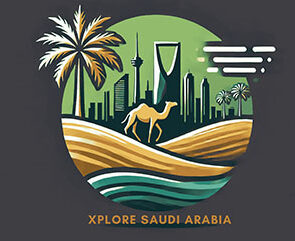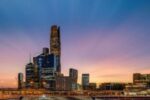
At the heart of Saudi Arabia’s real estate surge is Vision 2030, an ambitious blueprint to foster economic diversification. The plan emphasizes the development of non-oil sectors, including tourism, entertainment, and housing, thereby creating a robust demand for real estate across various segments.
Key initiatives under Vision 2030 include:
- NEOM: A $500 billion futuristic city integrating smart technology and sustainability.
- The Red Sea Project: A luxury tourism initiative expected to boost hospitality real estate.
- Qiddiya: An entertainment and tourism hub attracting leisure-based property investments.
- Diriyah Gate: A cultural mega-project revitalizing historical areas and boosting tourism-related real estate.
These projects are driving demand for residential, commercial, and hospitality properties while enhancing Saudi Arabia’s global investment appeal.
Residential Real Estate: Meeting Urbanization Demands
With a population exceeding 35 million and a significant youth demographic, urbanization is accelerating in cities like Riyadh, Jeddah, and Dammam. This urban growth is fuelling demand for diverse housing options, from affordable units to luxury residences.
Government initiatives such as the Sakani program are pivotal in increasing homeownership rates, aiming for 70% by 2030. These programs offer financial assistance and affordable housing solutions, contributing to a more inclusive property market.
Commercial and Retail Developments: Embracing Mixed-Use Spaces
The Kingdom is witnessing a shift towards mixed-use developments that combine residential, commercial, and entertainment spaces. Projects like the King Abdullah Financial District (KAFD) and Riyadh’s Diplomatic Quarter exemplify this trend, offering integrated environments that cater to modern lifestyle needs.
Additionally, the rise of e-commerce is reshaping the retail real estate sector, increasing the demand for logistics hubs and fulfilment centers to support online shopping.
Industrial and Logistics: Building a Global Hub
Saudi Arabia is investing heavily in logistics and industrial real estate, aiming to become a global trading and distribution hub. The development of economic cities, free zones, and industrial parks is enhancing the appeal of logistics properties.
Infrastructure projects like the Riyadh Metro and Jeddah’s port expansions are improving connectivity and opening new areas for investment.
Regulatory Reforms: Encouraging Foreign Investment
Recent regulatory changes have made it easier for foreign investors to acquire property in Saudi Arabia. The expansion of the Premium Residency Permit (PRP) in 2024 has simplified long-term residency for foreign nationals, boosting luxury property sales in cities like Riyadh and Jeddah.
Furthermore, the Saudi Arabian General Investment Authority (SAGIA) provides streamlined investment processes, making the market more accessible to international buyers.
Sustainability and Technology: Shaping the Future
Sustainability is a key focus in Saudi Arabia’s real estate sector. Developers are increasingly adopting green building practices and incorporating smart technologies into urban planning. NEOM and King Abdullah Economic City serve as prime examples of eco-friendly and tech-driven developments.
The integration of property technology (Proptech) is also transforming real estate operations, with digital solutions like virtual tours, AI-driven insights, and block chain-based transactions enhancing efficiency and transparency.
Investment Opportunities: A Diverse Portfolio
Saudi Arabia’s real estate market offers a diverse range of investment opportunities:
- Residential: High demand in urban centers due to population growth and government-backed housing programs.
- Commercial: Mixed-use developments and office spaces in economic hubs like Riyadh and Jeddah.
- Hospitality: Luxury resorts and hotels in tourist destinations like the Red Sea coast and Al-Ula.
- Industrial: Logistics centers and industrial parks supporting the Kingdom’s aim to become a global trade hub.
Conclusion: A Market Poised for Growth
Saudi Arabia’s real estate market is at the heart of the Kingdom’s Vision 2030. With strong government support, regulatory reforms, and a growing demand across various sectors, the market is set to experience significant growth in the coming years. For investors, this presents a compelling opportunity to be part of a transformative era in the Kingdom’s development.





